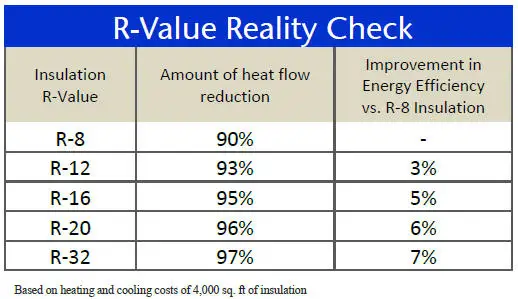When it comes to home energy efficiency, homeowners often focus on insulation for walls, windows, and attics, but one area that is frequently overlooked is the garage. However, considering that the garage door is the largest entrance to your home, insulating it can have a significant impact on your energy bills, comfort, and overall efficiency. In this comprehensive guide, we will explore the benefits of garage door insulation and the various options available, helping you make an informed decision for your home.
Advantages of Garage Door Insulation
Energy Efficiency
Uninsulated garage doors can be a major source of heat loss in the winter and heat gain in the summer, affecting your home’s overall energy efficiency.
Cost Savings
By insulating your garage door, you can reduce energy consumption, resulting in lower heating and cooling bills.
Enhanced Comfort
Insulation helps regulate temperature, making your garage more comfortable year-round.
Noise Reduction
Insulated garage doors provide soundproofing benefits, reducing noise from both inside and outside the garage. Studies show that an insulated garage door can be 3 times quieter than a non-insulated door.
Types of Garage Door Insulation Materials
Polystyrene Insulation
Polystyrene panels offer good insulation properties, are lightweight, and can be easily installed. They come in various thicknesses, providing different levels of insulation.
Polyurethane Insulation
Polyurethane foam insulation is known for its high insulation value, durability, and strength. It provides excellent thermal resistance and can also reinforce the structural integrity of the garage door.
Reflective Insulation
Reflective insulation utilizes a layer of foil to reflect radiant heat away from the garage. It is typically used in conjunction with other insulation materials for enhanced performance.
DIY Insulation Kits
These kits include insulation materials, such as batts or foam boards, along with installation instructions for homeowners who prefer a do-it-yourself approach.
Comparing Insulated Garage Doors
Insulation is rated using an “R-Value,” which measures its ability to resist heat transmission. A higher R-Value indicates slower heat transfer through the insulating material. This means that during winter, it helps retain warm air in the garage, while in summer, it keeps the heat out.
 Garage door R-Values typically range from R-0 (no insulation) to around R-20. However, homeowners should understand that R-Values are not linear. In other words, an R-16 door doesn’t have twice the insulating capability of an R-8 door. To better understand this, refer to the chart. It’s important to note that an R-16 door only provides a 5% improvement in insulation, while an R-20 door offers just a 6% improvement. Therefore, there’s no need to spend exorbitant amounts of money for only marginal insulation gains.
Garage door R-Values typically range from R-0 (no insulation) to around R-20. However, homeowners should understand that R-Values are not linear. In other words, an R-16 door doesn’t have twice the insulating capability of an R-8 door. To better understand this, refer to the chart. It’s important to note that an R-16 door only provides a 5% improvement in insulation, while an R-20 door offers just a 6% improvement. Therefore, there’s no need to spend exorbitant amounts of money for only marginal insulation gains.
There are aftermarket insulation kits available that offer R-Values ranging from R-2 to R-8. On the other hand, garage doors with insulation in the core typically range from R-6 to R-20.
The Installation Process
Professional Installation
Hiring a professional ensures proper installation, maximizing the insulation’s effectiveness and maintaining the garage door’s warranty.
DIY Installation
For those with adequate DIY skills, installing garage door insulation can be a cost-effective option. It involves measuring, cutting, and attaching insulation materials to the garage door panels.
Considerations When Choosing Garage Door Insulation
R-Value
The R-value measures the insulation’s thermal resistance. Consider the climate in your area and choose an insulation material with an appropriate R-value for optimal performance.
Garage Door Type
Different garage door styles may require specific insulation solutions. Consult with a professional to determine the most suitable insulation option for your specific door type.
Compatibility with Hardware
Ensure that the insulation method you choose does not interfere with the garage door’s operation or hardware components.
Future Maintenance
Consider the long-term maintenance requirements of the insulation material to ensure its durability and performance over time.
Conclusion
Garage door insulation is a wise investment that offers a multitude of benefits, from energy savings and increased comfort to noise reduction and improved durability. By understanding the importance of garage door insulation, you can make an informed decision that will enhance your home’s energy efficiency and overall functionality. You can use an aftermarket kit as an affordable option and get something in the R-8 range. On the other hand, if you need more insulation or are getting a new garage door installed, you’ll want to explore available insulated garages from vendors to find the right door for you. Of course, we’re always here to help, just get in touch!
Don’t overlook the potential of your garage door when it comes to creating a well-insulated and efficient home. Start reaping the benefits of garage door insulation today.

